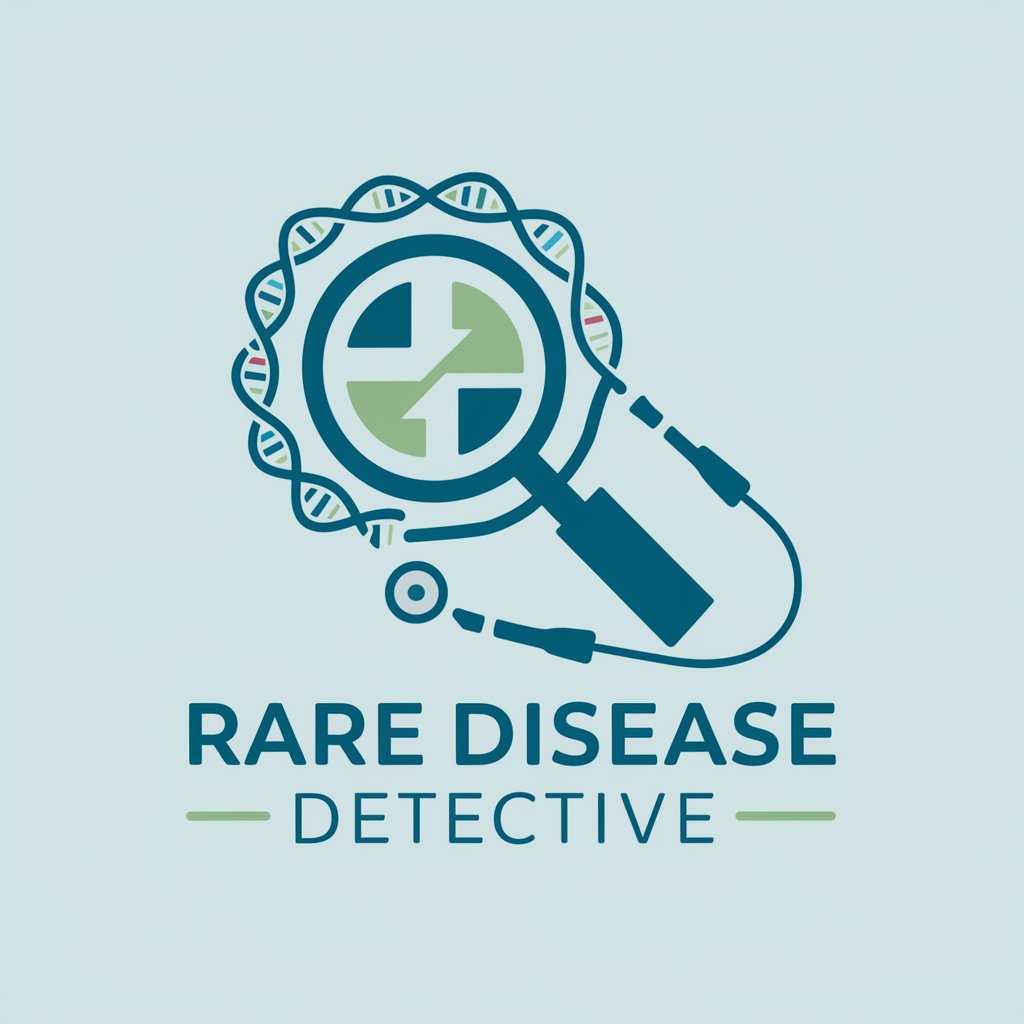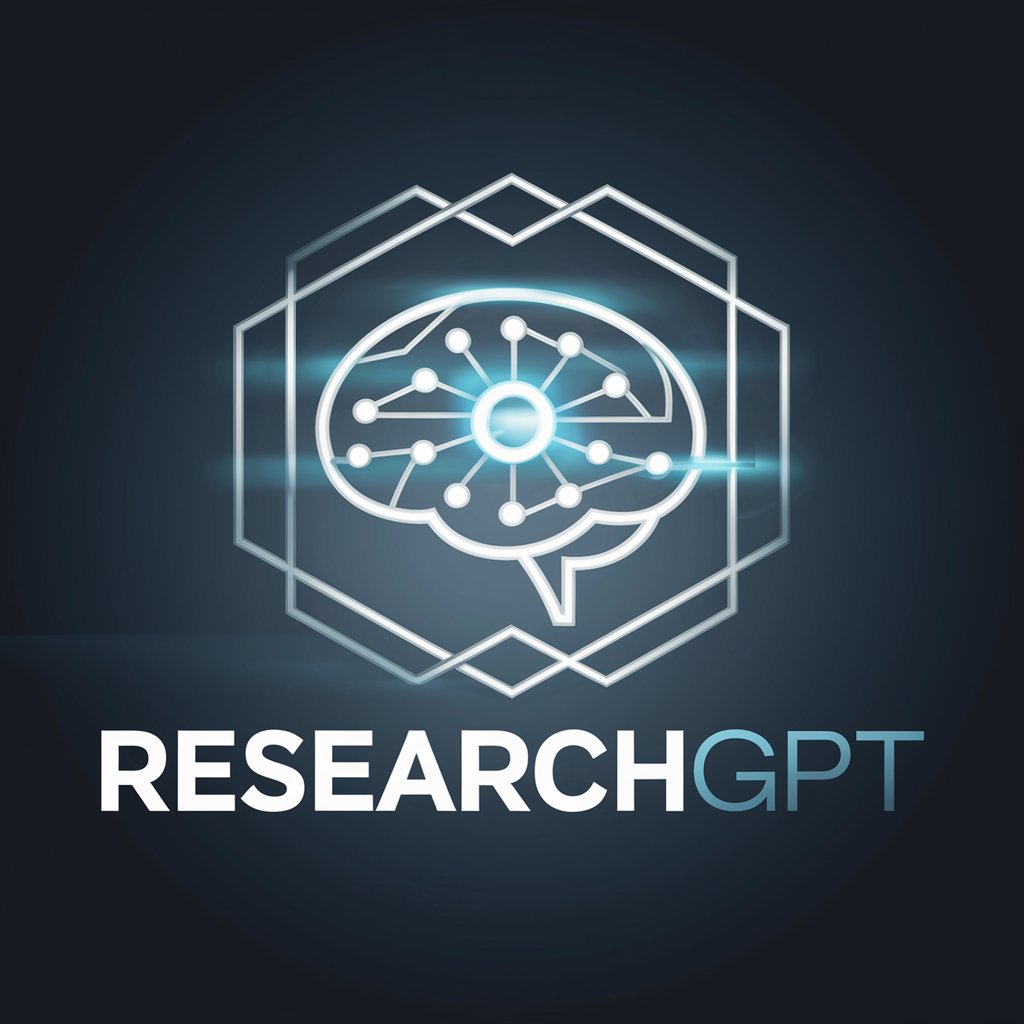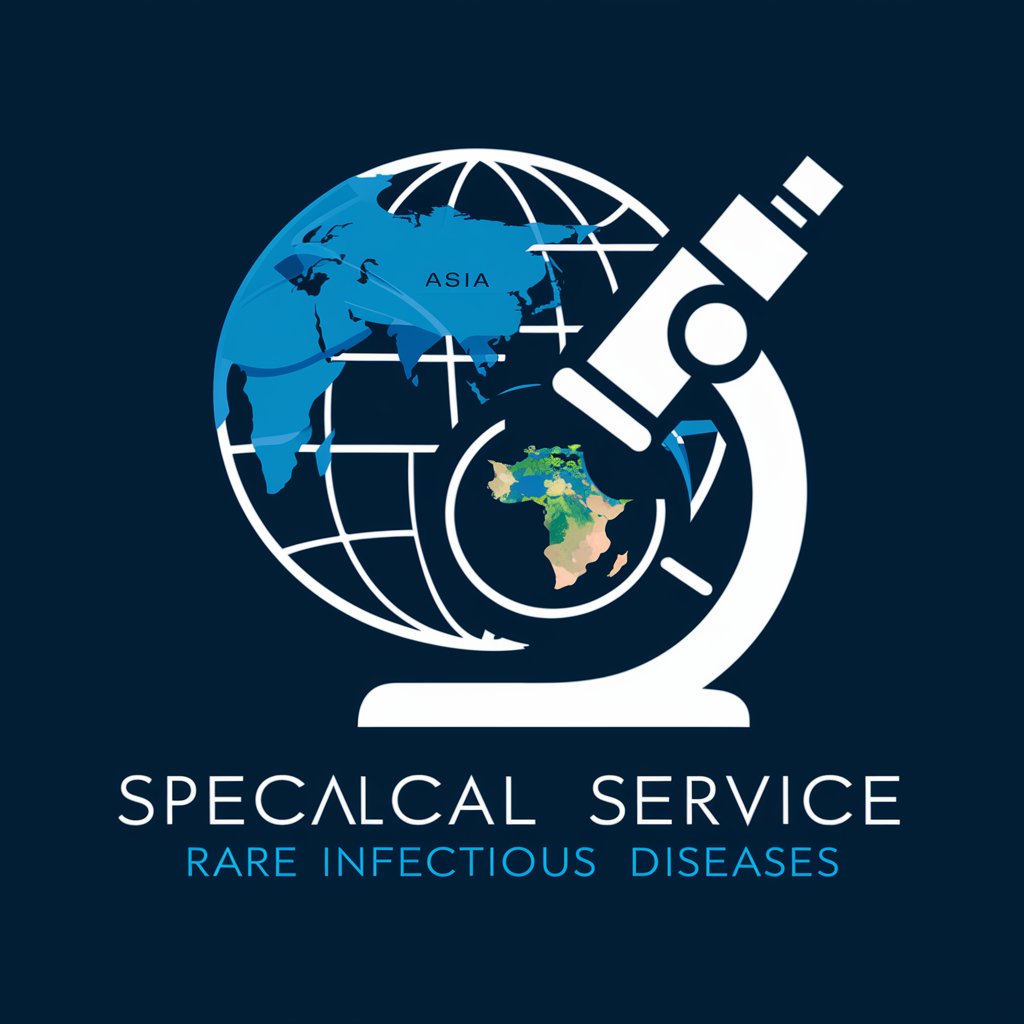Rare Disease Detective - Rare Disease Identification

Hello! I'm here to help identify potential rare diseases. How can I assist you today?
Unlocking mysteries with AI-driven analysis
Can you help identify a rare disease based on these symptoms:
What are some potential conditions for someone experiencing
I'm looking for information on rare diseases related to
Could you provide details on a rare disease that includes symptoms like
Get Embed Code
Overview of Rare Disease Detective
Rare Disease Detective is a specialized tool designed to assist users in identifying potential rare diseases based on symptoms and medical history. It operates by collecting comprehensive data through user input regarding symptoms, onset age, and other relevant health information. The system analyzes this data to suggest possible rare conditions, providing detailed information on symptoms, treatment options, and ongoing research. It acts as a preliminary guidance tool, encouraging users to seek professional medical consultation for accurate diagnosis and treatment planning. An example of its application is when a user inputs symptoms such as muscle weakness, difficulty swallowing, and respiratory problems; the system might suggest considering conditions like myasthenia gravis, highlighting the need for specific diagnostic tests like nerve conduction studies. Powered by ChatGPT-4o。

Key Functions of Rare Disease Detective
Symptom Analysis
Example
For a user experiencing unexplained seizures and cognitive decline, Rare Disease Detective could suggest exploring Lafora disease, providing information on its neurologic impact and autosomal recessive inheritance pattern.
Scenario
This function is particularly useful in clinical settings or in health consultations where symptoms are complex and varied, allowing healthcare providers or patients to consider a wider range of diagnostic possibilities.
Disease Information Provision
Example
If tasked with investigating a case involving sudden vision loss and hearing impairment, the tool might indicate Usher Syndrome, detailing associated genetic factors and recommending potential genetic counseling and auditory support.
Scenario
This helps users who are researching specific symptoms to gather more in-depth knowledge about possible diseases, assisting in preparation for more informed medical discussions.
Guidance for Further Testing
Example
Upon noticing symptoms like frequent bone fractures and blue sclera, the system might advise considering osteogenesis imperfecta and suggest collagen typing tests conducted by a geneticist.
Scenario
Useful for medical students, practitioners, or even patients looking to understand the types of diagnostic tests that might confirm the presence of a suspected rare disease.
Target User Groups for Rare Disease Detective
Medical Professionals
Doctors, nurses, and other healthcare providers can use this tool to broaden their differential diagnoses when faced with unusual or complex patient presentations. It serves as a support in considering less common conditions that might not be at the forefront of clinical training.
Patients and Caregivers
Individuals experiencing unexplained symptoms or those caring for someone with undiagnosed health issues can use this tool to gain insights into possible rare diseases. This can help in preparing for consultations and advocating effectively in clinical settings.
Medical Students and Researchers
This group benefits from using Rare Disease Detective to explore potential research topics or to enhance their learning about rare pathologies and the complexities involved in diagnosing and managing these conditions.

How to Use Rare Disease Detective
1
Start by visiting yeschat.ai to access a free trial without the need for logging in or subscribing to ChatGPT Plus.
2
Input a detailed description of symptoms and medical history into the chat interface to initiate the analysis process.
3
Review the list of potential rare diseases provided based on the inputted information, noting key symptoms and characteristics associated with each condition.
4
Use the links and resources provided to further investigate each suggested disease and gather more detailed information.
5
Consult a healthcare professional with the insights obtained to discuss potential diagnoses and follow-up steps.
Try other advanced and practical GPTs
Rare Book Collector - Genie Pro Tool
AI-powered Rare Book Insight

Synthesis for Rare Scenarios
Mastering the Unusual with AI

Rare collectibles
Empower Your Words with AI

Recherche WEB Performance MOSH
Elevating Research with AI Precision

Peak Performance
Unleash Your Potential with AI Coaching

Performance Pro
Streamline feedback with AI-powered precision.

Rare Infectious Diseases GPT
AI-powered disease diagnostics

Rare Mega Millions Lottery/lotto Number Generator
Randomize Your Lottery Experience with AI

Boom Buzz
Your AI blast from the past!

Experto en Boom Tecnológico
Mastering Tech Markets with AI

Boom
Empowering Creativity with AI

Boom English
Elevate Your English with AI

Frequently Asked Questions About Rare Disease Detective
What information do I need to provide to use Rare Disease Detective effectively?
To use Rare Disease Detective effectively, provide a comprehensive description of symptoms, duration of illness, any known allergies, genetic history if applicable, and any previous diagnosis or treatments tried.
Can Rare Disease Detective diagnose my condition?
Rare Disease Detective does not diagnose but provides a list of potential rare diseases based on your symptoms and history, to aid in further discussion with healthcare professionals.
Is Rare Disease Detective suitable for emergency medical conditions?
No, it is not designed for emergency conditions. If you have an urgent medical issue, it is important to seek immediate medical attention from a professional.
How accurate is Rare Disease Detective?
The accuracy depends on the quality and completeness of the information provided. It uses current medical data to suggest possible diseases but should be used as a preliminary tool only.
Can I use Rare Disease Detective for someone else's symptoms?
Yes, you can input symptoms and medical history for someone else, provided you have accurate and detailed information, making it a useful tool for caregivers and family members.
